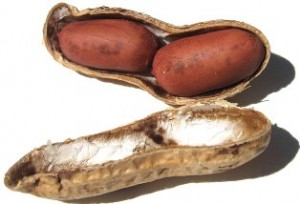 Casting doubts on government health recommendations that infants and new mothers should avoid eating peanuts, a new study says that eating peanuts early in life may help to avoid developing peanut allergy.
Casting doubts on government health recommendations that infants and new mothers should avoid eating peanuts, a new study says that eating peanuts early in life may help to avoid developing peanut allergy.
In their study, the researchers looked at the occurrence of peanut allergy in 8,600 Jewish school-age children in Israel and the UK. Then they analyzed data on peanut consumption by infants ages four to 24 months.
The researchers found that the prevalence of peanut allergy among the U.K students was 1.85 percent while it was 0.17 percent among the Israeli children. The researchers also found that almost 69 percent Israeli children started eating peanuts at nine months of age while these rates were only 10 percent among the British children.
Dr. Du Toit, who led the study, says: “In both populations, the most obvious difference in the diet of infants occurs in the introduction of peanut.”
occurs in the introduction of peanut.”
However, the researchers cautioned that further study is needed before changing guidelines that recommend to avoid peanut consumption during pregnancy, breast-feeding and infancy.
The study has been published in The Journal of Allergy and Clinical Immunology, November issue.
Though these findings seem promising, they don’t prompt any immediate changed, the American Academy of Allergy, Asthma & Immunology (AAAAI) says. There can be some other factors that may explain this difference in peanut allergy prevalence between the UK and Israel.